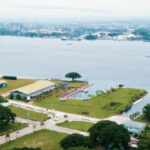ARE we winning the war? When millions, even billions, worth of illegal drugs are seized or intercepted on a daily basis, is the glass half-full or half-empty?
Lowlife pushers and low-end dealers are caught while the “big fish” are still swimming, either because they have friends in high places and they have good lawyers, or our policemen and state prosecutors aren’t cut out for the job. If the acquittal of the daughter of the “drug queen” who lives near Malacañang Palace – they had the privilege of being protected (from whom?) by two military men! – is any indication, then as PDEA chief Aaron Aquino says, we might as well give up the fight.
In the United States, bastion of democracy and the good life, 72,000 Americans overdosed on opioids and pain killers last year. Over the last 15 years, 500,000 persons died from drug overdose (from a CNN interview with Beth Macy, author of Dopesick). Over here, we constantly hear about the casualties of Operation Tokhang, buy-bust ops, and so-called EJK’s, but not much in the area of successful interventions and rehabilitation. There’s one rarely told story of a rich man’s son who has been undergoing rehab in a private clinic for as long as the last three, maybe even four, presidencies. In the green and tranquil retreat where his “staycation” is paid for by his family to the tune of R60,000 a month, he’s not aware that neither his parents nor siblings are in any hurry to bring him home, as willing as they are to keep him in the clinic, uhm, under the best possible care.
The super-sensational destruction of a number of sprawling shabu factories in Metro Manila and Luzon has forced the manufacturers, ever bolder and more despicable, to go private, that is, move their operations into cozy residences inside respectable, gated communities. The ingredients are smuggled into the country but the “cooking” is done in rented houses, whose owners are too naïve or hungry to reject quick, easy money – always in cash – flashed by the foreigners, usually Chinese from the mainland. Those merchants of death by slow motion are the bane and shame of Philippine-born Chinese.









